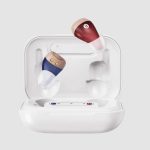
Primary care providers hold immense power in the fight against the opioid crisis. In places like Dallas TX Internal Medicine, doctors stand on the front lines. They are the first to spot addiction. They are the first to offer help. Their role in this crisis is critical, and understanding their importance is key to overcoming this nationwide problem.
Primary Care Providers: The First Line of Defense
When we think of health providers, we often picture specialists. Yet primary care providers are just as important. They are often the first to see signs of addiction. They play a crucial part in early detection and intervention.
The Role of Primary Care Providers in the Opioid Crisis
Primary care providers have a unique role in combating the opioid crisis. They are the gatekeepers of medical care. They have the ability to identify early signs of opioid abuse. They can educate patients about the risks. They can refer patients to treatment programs. In short, they can save lives.
The Power of Early Intervention
Early intervention is key in fighting opioid addiction. The sooner the problem is spotted, the better the outcome. Primary care providers can make this happen. They can help patients get the help they need before it’s too late.

The Importance of Patient Education
Education is a powerful tool in the fight against opioids. Primary care providers can educate patients about the risks of opioids. They can teach them about alternative pain management strategies. They can help patients make informed decisions about their health.
How Primary Care Providers Can Help
Primary care providers can do a lot to help fight the opioid crisis. Here are three key ways:
- They can spot early signs of opioid abuse.
- They can educate patients about the risks of opioids.
- They can refer patients to treatment programs.
By doing these things, primary care providers can have a huge impact on the opioid crisis.
Conclusion
The opioid crisis is a major public health problem. But with the help of primary care providers, we can turn the tide. They have the tools and the knowledge to make a difference. They can spot addiction early. They can educate patients about the risks. They can guide patients to the help they need. By understanding and harnessing this power, we can fight the opioid crisis.







